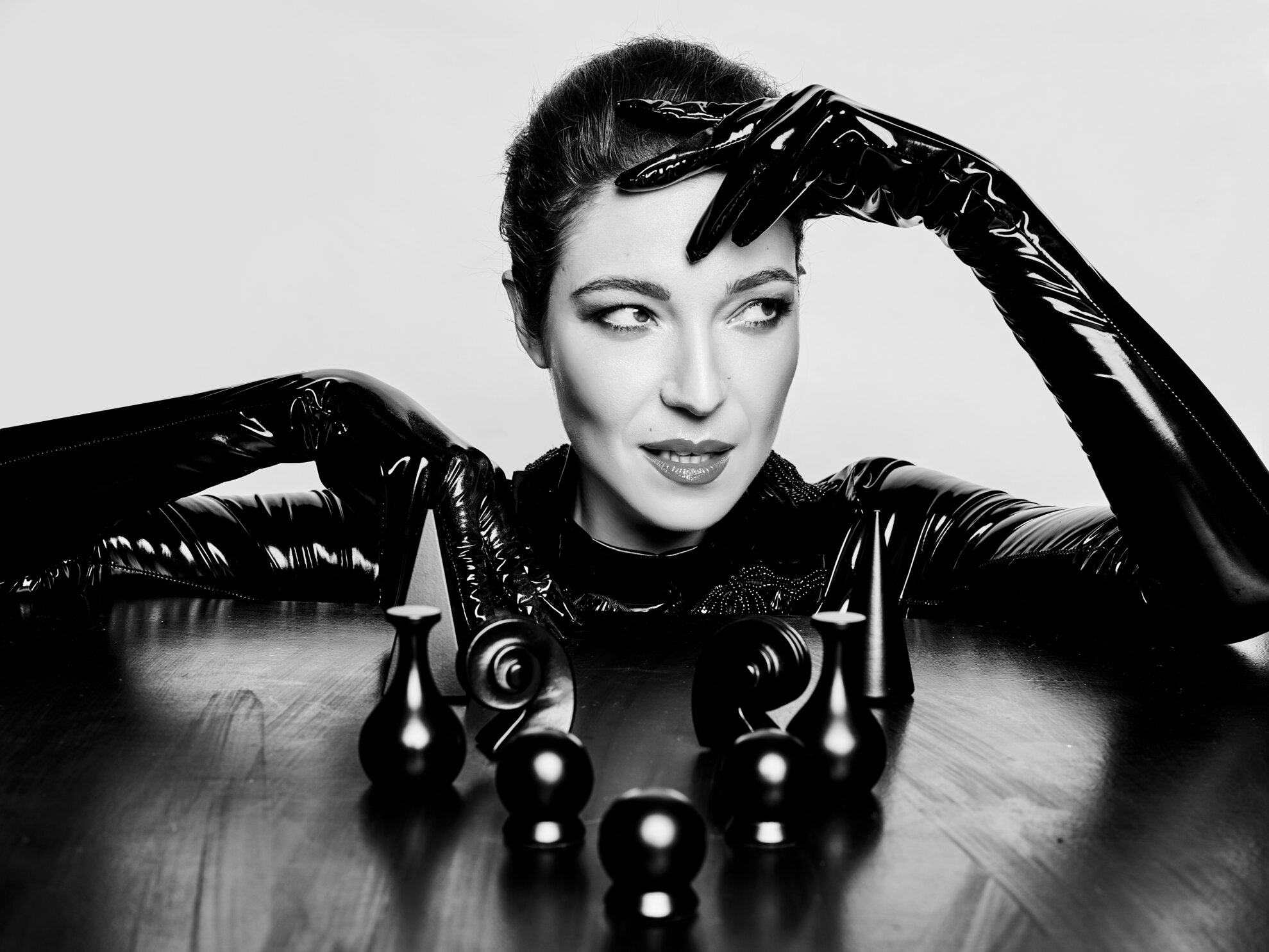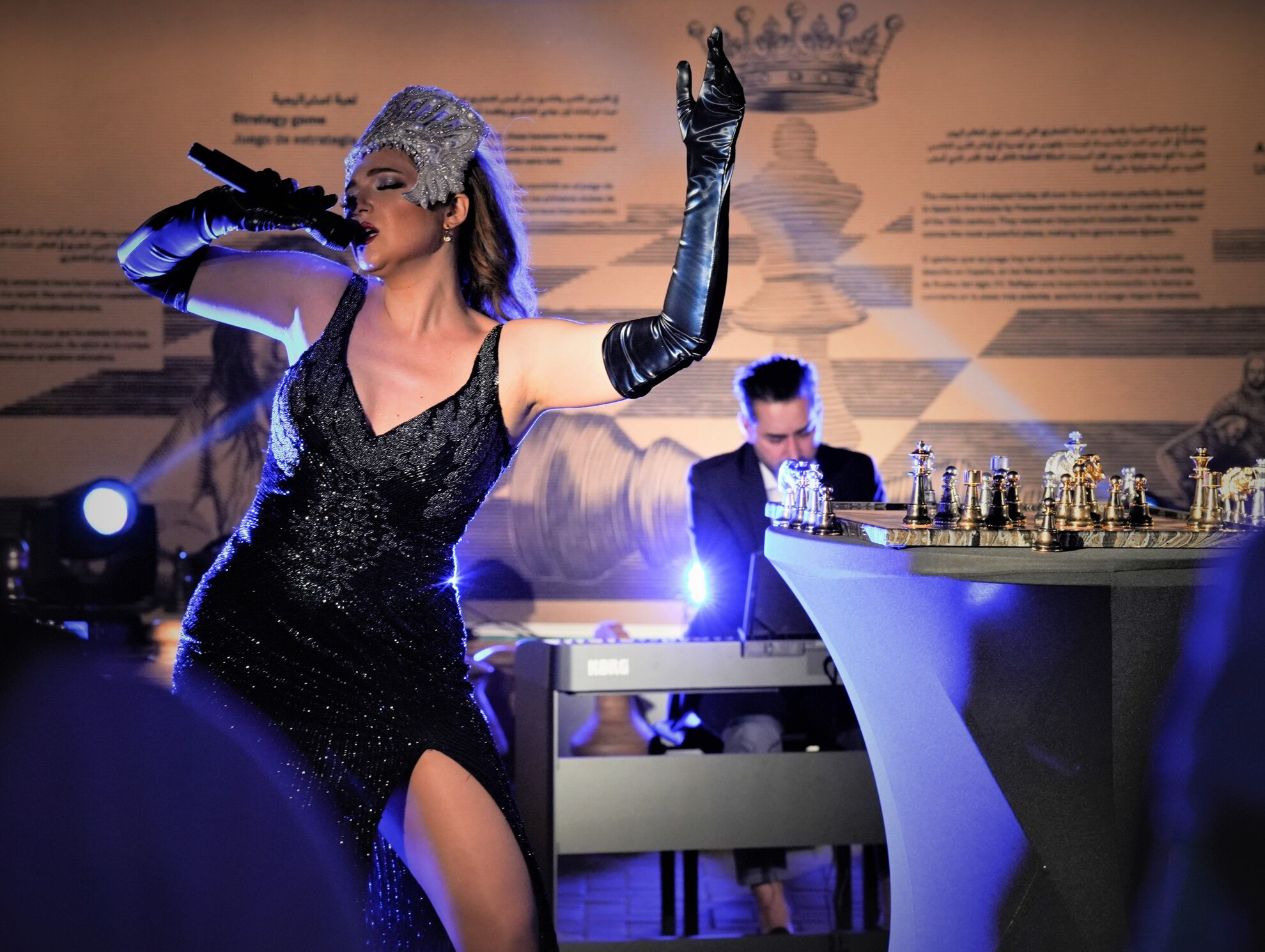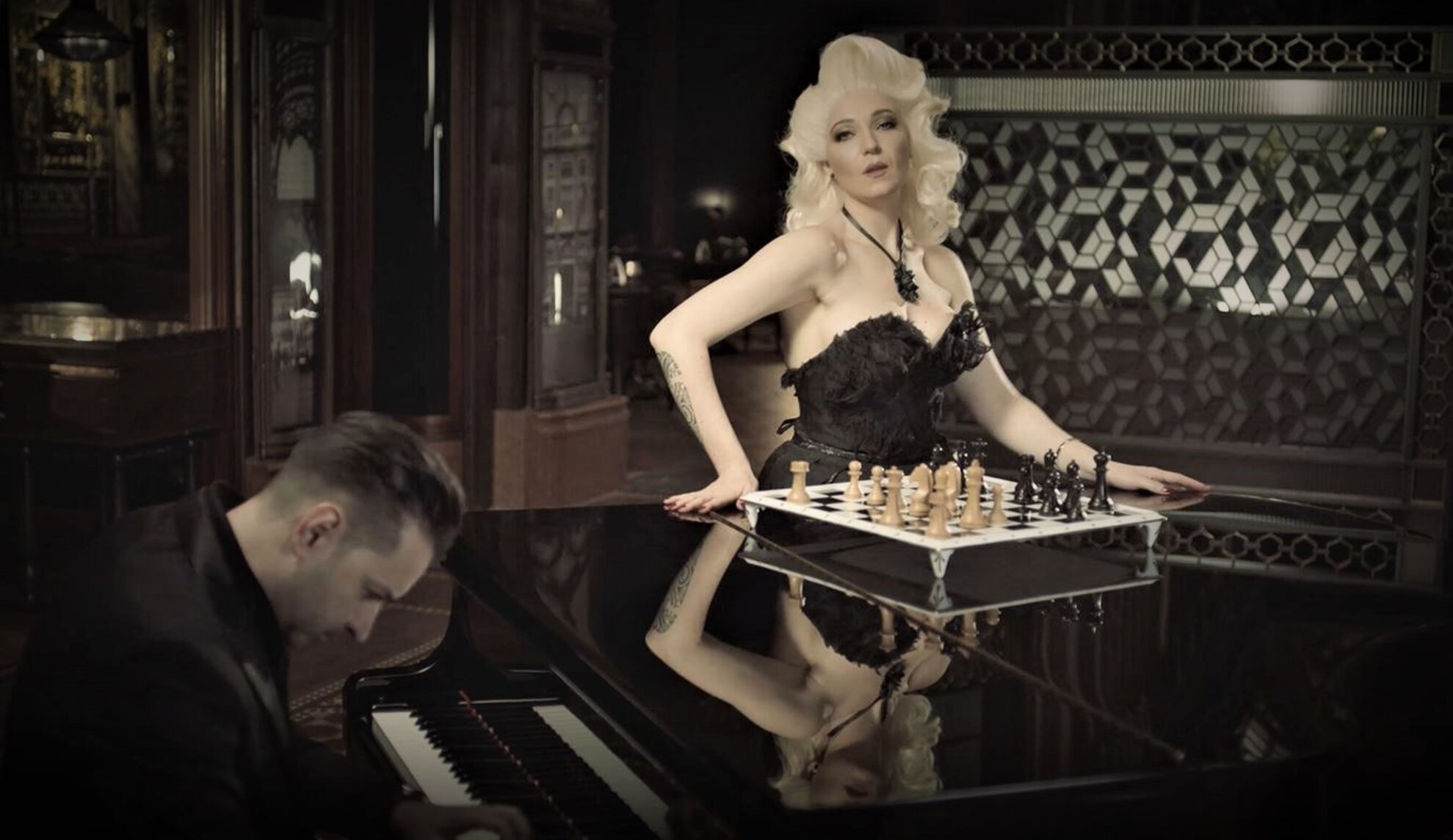“It’s like a parallel universe,” says Juga Di Prima, talking about the game she has studied intensely, played at major events internationally and one she takes to a different level every time she performs her Chess Divas show.

Recently presented in Munich, Dubai and Budapest where this Chilean-born singer has been based since 2019, Chess Divas now treads the boards in the piano-themed lobby of the Aria Hotel, on Friday, 11 March shortly after International Women’s Day.
“Chess transports you to a different dimension,” says Juga. "Chess is like a religion, a spiritual order. Many are devoted to it. It moves across time and across civilisations. In this throwaway culture of us, it is something permanent. Its rules date back 500 years, it existed in various forms for over 1,000 years – it won’t change, there’s no need for it to."
Tactical
Juga's song Tactical was premiered at the Norway Chess Tournament for the World's Top Ten Players.
The concept of Chess Divas has taken Juga Di Prima years to create, delving deep into chess theory and pooling all her talent as a singer, songwriter and scriptwriter, spanning many years and several genres.
“I left behind a successful singing career in my own language, in Chile and Argentina,” she explains. “I was competing in a chess tournament in Cannes in February 2017, while having a personal crisis. I started looking for deeper meaning, my purpose in life. I cut my hair very short, cut all social media and devoted myself to studying chess theory. Then I realised that I had to blend my passions, that chess itself could be a new music genre. I began writing songs in English and scripting videos inspired by chess games.”
Oh Capablanca
Considered the best song ever written about chess, this award-winning music video celebrates legendary world champion José Raúl Capablanca, who famously said “We learn more from our defeats than from our victories”. As Juga sang at the Chess Olympiad in Batumi, Georgia, in 2018: “Took my chances fast. My rook was a knife. And my almighty queen. A beast on h6”.
Along with music, chess has been integral to the singer’s life from an early age. “I learned how to play when I was nine, watching my father play with his friends. He would spend hours and hours sitting over the chessboard in total silence. I wondered what keeps him so thrilled yet enthralled for so long? I learned a bit by bit. It taught me how to focus and to tolerate frustration.”
Juga soon grasped the wider social benefits of the game. “It teaches you how to live better, to improve your social and personal skills. It’s useful and wonderful for you as a human being.”

And, as perfectly illustrated by her good friends, chess masters Judit Polgár in Hungary and Alexandra Kosteniuk in Russia – not to mention by hit Netflix series The Queen’s Gambit – chess can also empower women. It’s no coincidence that Juga Di Prima’s Chess Divas show at the Aria Hotel takes place during the same week as International Women’s Day.
“One of the things I’m most proud about is founding Chile’s National Women’s Chess Tournament in 2007,” she says, as director of the Chilean Chess Foundation and recently becoming Ambassador for the Munich Chess Foundation.
Both Judit Polgár and Alexandra Kosteniuk have collaborated with Juga on the original songs she performs for Chess Divas.
Polya Chornya
Polya Chornya (‘A Musical Tribute to Women Chess Legends in History’) was actually written by Kosteniuk herself and is dedicated to Vera Menchik, the world’s first female chess champion.
Performed
in Russian, Polya Chornya illustrates Juga’s ability to augment the universality
of chess by learning a selected song in the language of the host country, deepening
her connection with the audience.
“It was a huge challenge to sing in Arabic, but no bigger than learning a Hungarian song! It's so hard to remember the lyrics,” she says, looking back on her appearance at the Expo in Dubai.

After working on her music in Buenos Aires and living on Easter Island, Juga realised she had to come to Europe to follow her dream. She developed her show here in Budapest, inspired by the city and working out song arrangements.
Ha én rózsa volnék
“It took a long time to find the perfect song in Hungarian. In the end, I chose Ha én rózsa volnék. It’s very beautiful and people in Hungary seem to appreciate it.” She dedicates Ha én rózsa volnék as a tribute to the Polgár sisters, the video filmed at the elegant Párisi Udvar in the heart of Budapest.
“Budapest is like the secret treasure of Europe. It’s not just another
big capital like Paris or Berlin. It has wonderful Art Nouveau architecture, a vibrant cultural scene
and nightlife. I love the Danube bridges, Buda Castle, Margaret Island, Heroes’ Square and the Gellért Baths. It has I also love the Hungarian
chess tradition, particularly the Polgár sisters,” says Juga, referring to the Magyar
chess masters who rose to the highest levels of the game at a very young age.

Judit Polgár, in particular, was the first woman to take on the male-dominated world of chess and win. She now organises the inclusive Global Chess Festival where Juga performed last October.
“Here in Budapest, I found a great pianist, László Lakatos, and we work together as a duo. This allows me to incorporate graceful chess moves into the performance, in an intimate setting.”

Chess Divas comprises two sets of 50 minutes, with 26 songs altogether. These include revered standards by Edith Piaf and Marlene Dietrich, as well as many of the originals written by Juga herself.
“Chess Divas should be an interactive experience,” says Juga. “It has a theatrical atmosphere and there’s an immediacy with the audience. It emphasises brotherhood, freedom, diversity and universal tolerance. Chess Divas brings chess closer to people.”
The Immortal Game
Inspired by the #Blacklivesmatter movement, Juga’s song Immortal Game concludes: “Across time, we’ll remain. Across lands, ’cross the ages and Space. We’ll remain colour blind”.
The Immortal Game was the first video Juga directed, filmed at one of her favourite places in Budapest, Szimpla Kert, and featuring Judit Polgár and chess players from ten countries. The song springs from pioneering player Adolf Anderssen who made the first move with black chess pieces in 1851.
"Chess is for everyone, it’s universal. It’s like a family. It connects people, it’s creative. I believe in it. I want the whole world to fall in love with chess!"
Event information
Chess Divas
Aria Hotel
1051 Budapest, Hercegprimás utca 5
Friday, 11 March 8pm-11pm
Facebook Event




